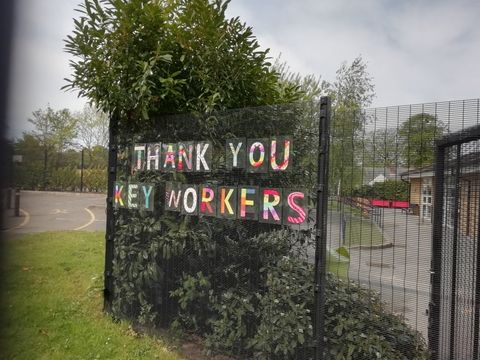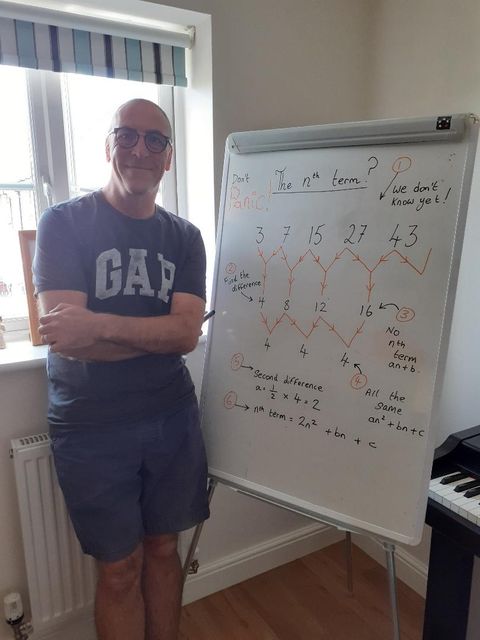It's been a tough time for students and one-to-one tuition can help..
I thought I would share a few observations since I joined Tip Top Tutoring, especially in light of the Covid-19 challenges. I’m going to talk about how students have found the recent disruption to learning and you may find similarities in you experience of teaching your own children, let’s see. I believe that one-to-one support is going to be the intervention that will help many students to overcome their anxieties about the next steps - given so much has been missed.
Firstly I would like to tell you of what it was like to teach in school during the lock-down (March to July) at school – many of you may be worried that your child has not been to school at all since March and how much they have missed out on but I can assure you – it wasn’t easy for the key worker children who continued to attend school and learning has definitely been disrupted.
Before tutoring, I had been teaching in a local primary school. When the lock-down was imposed I continued (as did many of my colleagues) to teach children of key workers. The classes were small, no more than ten and sometimes as low as four. The children were kept together as sibling groups, which meant the classes were mixed age groups (this means teaching to the class in the conventional sense was rather difficult). Obviously the fabric of the school was altered to follow the government guidance on distancing and hand washing….and the myriad of the other ever-changing rules.
The children and their teachers spent the period of March to July in ‘bubbles’. Clearly school was going to be VERY different for all concerned, throw into this the worries children have of their own families (many had parents who were nurses). This was far from what school had always been to them prior to the lock-down. While small classes are the dreams of teachers; in this case we were not allowed to go near any of the children to help them with their work and we couldn’t mark their work; this is not ideal. A maths lesson would be each child (across the age range) working on their own with occasional help from their friends and me at the front. In my own case I taught with a sense of extra care for my bubble and it would be true to say that for those strange months my class became more like a family than the usual stereotypical class. To keep their interest and to keep their sense of inquisitiveness alive, I let them choose topics of interest and planned mini-lessons to suit. We learned everything, from Martin Luther-King to “Can the Millennium Falcon fly in atmosphere?” I like to think that the children DID learn a lot about the world but probably learned a lot more about themselves; however there has been significant disruption in the teaching and learning f Maths and English – the subjects that no one wants to get left behind in.
So what of those children who were in lock-down? Having some one-to-one tuition has proved to be very worthwhile for the following students who I took on in July…
Student A, a year 7 girl - Maths
Student A was having a stressful lock-down which was mostly caused by a deluge of homework being sent via email which was fast becoming overwhelming for her. This was further compounded by the fact that some of the homework in maths was at GCSE level and came with little or no explanation. The priority here was to assess precisely where the gaps were and ascertain what she did and did not know within the homework assignments. We selected areas and topics which she herself felt unsure of and went from there. Within two sessions she was able to tackle some GCSE foundation level work in ratio, equations and probability. As her confidence grew I was able to show her some harder level work. Each session plugged the areas that were of concern and also added extra guidance in how to tackle more complex problems. Most of the work we did was GCSE and the rest followed the Year 8 syllabus for when she returns to school.
Student B, a year 8 boy - Maths
Student B was already struggling with some aspects of Maths prior to the lock-down. Time was spent on these areas and help given as to overcome them quicker. We established some strategies that helped with recall. Confidence was a major factor in this particular case as the lock-down had simply added to his frustrations. Again after two sessions his confidence grew and he began to apply some of the strategies and do so with skill. For example, lots of simple errors were being made with basic subtraction; we focused on this in order to then move onto more complex concepts such as fractions and equations. Most of our work was pitched to the Year 9 syllabus and we tackled some GCSE foundation which greatly increased his confidence.
Student C, a year 4 girl - Maths
Student C was one of those students who just loves the whole one-to-one experience. She came with a slight feeling of self-doubt and consequently her confidence had been knocked by the absence of school and school routine. There were some gaps in times table knowledge (though again this was mainly the manifestation of self-doubt). We tackled the basics of mathematics that she had covered before lock-down and then worked on strategies to help overcome them. As a challenge she also fully mastered her 8X which gave her a huge confidence boost. After this we looked at aspects of the Year 5 syllabus; this included place value, multiplying and dividing by 10,100,1000 and perimeter (to reinforce her recall of number). We then went on to fractions and even added in the odd Year 6 problem to let her see how far she had come.
Student D, a year 8 girl – Maths
Student D was yet another student who had lost track after lock-down and the gaps that were already there simply remained. We quickly established areas of concern and began to fill them with some easy to use strategies and some reinforcement of those aspects of maths which were proving a stumbling block. Ratio was again a problem (I can only think that it must have been on the Year 7 syllabus just as lock-down happened). Once we had secured Ratio we looked at some “niggling” concerns that Student D had with fractions and came up with a “personalised” method of doing them, with success. This student was able to the Year 9 probability as well as GCSE foundation equations with a higher sense of confidence and ability.
Clearly the effect of the lock-down has been felt by all these students and it is visible in the needs that each one came with. The most common factor was, without doubt, confidence. Then came the gaps caused by trying to understand concepts via distanced learning as appose to being in a classroom. Giving out endless homework with no guidance is just not fair. In all cases the parents felt unable to help with some of the maths, let’s face it….maths is meant to be challenging and isn’t easy. Existing gaps in knowledge simply remained and became either neglected or worried about. The lack of the school routine and environment did not help this. For lock-down students this was a “learning time bomb” and in many cases it has yet to trigger! If one-to-one learning helps in re-establishing these key factors and more then perhaps you should consider giving it a go. Online tuition is actually very bonding and fun. Okay there is the odd cat that strolls over the keyboard and in front of the screen but you know, I’d rather put up with that than lock-down !
Cristoir Csorba.



